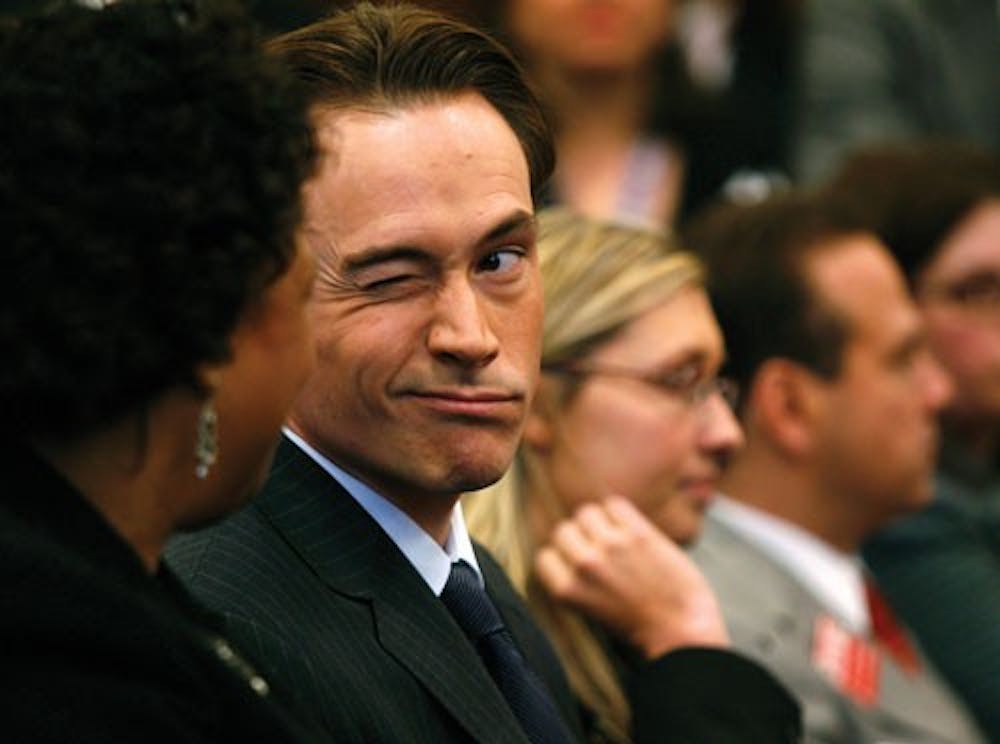WASHINGTON – Jazz musician Wynton Marsalis, actor Chris Klein and Black Entertainment Television co-founder Sheila Johnson pressed Congress on March 13 to restore funding for the arts to levels from 15 years ago – before those funds were slashed.\nThe arts activists joined the advocacy group Americans for the Arts for a day of lobbying and testimony before the House Appropriations Subcommittee on the Interior. They asked that funding for the National Endowment for the Arts be increased to $176 million for fiscal 2008, which was the federal government’s all-time high allocation in 1992.\n“Our kids are uncultured and culturally ignorant all over this country,” Marsalis said. “I think it’s important for us, in this time, to set another tone for what our nation is about.”\nMarsalis said Americans shouldn’t be viewed on the world stage as “the kids who walked into the candy store with a machine gun” but instead as a culture “we are proud of.”\nWhen Republicans took over the House in 1995, they tried to eliminate all funding for the NEA. Critics said the NEA was supporting obscene art. The agency survived, but Congress cut its budget by 40 percent to $99.5 million in 1996 and 1997.\nThe Bush administration’s proposed budget for fiscal 2008 includes $128.4 million for the NEA, an increase of $4 million. Arts advocates asked for more Tuesday, saying the NEA’s funding should be $254 million if its 1992 funding were adjusted for inflation.\nState funding for the arts also has declined over the past decade as cash-strapped governments scrambled to erase deficits.\nPart of the rationale for the federal cuts in the 1990s was that private funding could fill the void. But the share of philanthropy being directed to arts organizations also has declined since 1992, said Robert Lynch, president and chief executive officer of Americans for the Arts.\n“That drop represents an $8.4 billion loss to the arts in private sector giving,” Lynch said. Private giving to the arts has long been tied to the inherent endorsement of arts programs from federal funding, he said.\nLynch brought more than 400 arts promoters to Capitol Hill on Tuesday for the group’s annual Arts Advocacy Day. They met a mostly friendly audience in the Democratic-led subcommittee. It was the first congressional hearing on arts funding in 12 years.\n“Except for a few members of the flat earth society, there is little opposition to this funding,” Rep. Norm Dicks, D-Wash., said Tuesday. “The culture wars are over.”\nDicks said the NEA should see an increase in funding, but added that it’s not clear how much money lawmakers would be able to carve out of the budget.\nLynch urged lawmakers to consider the economic impact of arts organizations in both small towns and big cities. A 2002 economic impact study showed the arts generate $134 billion in economic activity each year, 44.5 million full-time jobs and $24.4 billion in tax revenue for the federal government, Lynch said.\nJohnson, a longtime arts philanthropist and part owner of the group that owns the NHL’s Washington Capitals and the WNBA’s Washington Mystics, said she owes her business success to the arts. Before co-founding BET, Johnson was a music teacher.\n“Working with children, that was my passion,” Johnson said. “We are doing them a huge disservice by pulling the arts out of the schools.”\nKlein, who played leading roles in “American Pie” and “Election,” said the NEA should be celebrated for funding programs such as Voices in Harmony and P.S. Arts in Los Angeles. He said such programs were restoring arts education in public schools.
Congress holds hearing on funding for arts
First hearing in 12 years attracts artists to Capitol

Get stories like this in your inbox
Subscribe





